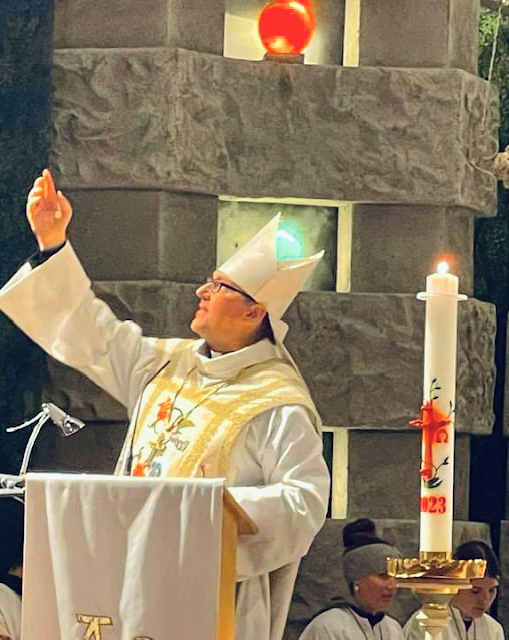Bishop unconcerned with crisis in the Catholic Faith but very concerned with refugee and environmental crises
Glettler for more solidarity in climate and refugee crisis
Bishop of Innsbruck at rededication ceremony in Ried monastery: need solidarity, but also reliable prayer
In view of the current crises, namely the climate and refugee catastrophes, Bishop Hermann Glettler of Innsbruck pleads for "action in solidarity". "Neither repressing or whitewashing, nor a negative, hysterical overreaction in the face of these facts makes sense," the bishop said in his sermon at the rededication of the monastery in Ried im Oberinntal on Sunday.
The severe weather events of the summer, for example, "can no longer be ignored as real warnings", the Bishop emphasised. Pope Francis had already published his "concern for the common home" in the form of his environmental encyclical "Laudato si" in 2015. "This concern that we all together still manage an ecological turnaround in time has the highest priority for our reflection, effective action and prayer," the Bishop said.
The global refugee crisis must be addressed with equal urgency. Migration with different causes as well as flight movements are an enormous challenge worldwide, he said. "The images of the desperate crossings in the Mediterranean are heart-wrenching. What is needed here is action in solidarity, but also reliable prayer in this matter. Both are being done in an "exemplary way" in the Ried monastery, said the Bishop. Refugees - currently women and children from Ukraine - are accommodated in the Capuchin monastery.
Monastic life is a counter-model
Glettler also praised the monastery life as "lived solidarity in our nervous times". In this way, it represents a counter-model to the "many hysterical overreactions, social upheavals and ever-increasing isolation", said the Bishop. The monastery comes very close to the vision of a "spiritual oasis", Glettler said. "Here there is a place of retreat for individual contemplation and at the same time parish spaces that enable encounters."
Glettler also recalled the rich past of the Capuchin monastery; for centuries it was a popular place of confession for the Upper Inn Valley. Even though the sacrament of reconciliation, confession, has lost much of its appeal, a longing remains: "To be able to get rid of everything somewhere, in a discreet and yet personal way". Many people today carry around heavy burdens of "resentment, reproaches, inner hurts and curmudgeonliness", Glettler said. "Why not re-establish this place as a starting point for reconciliation?" the Bishop encouraged the monastic community.
Cathcon: This is the Bishop that thinks modern art is the solution to all the problems of the modern Church.










.jpeg)

Comments